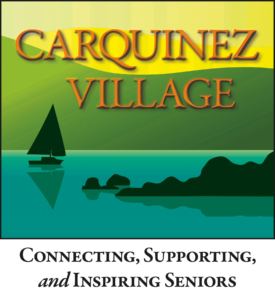By Lois Requist
In an age of a great deal of material “stuff,” what does the word “need” mean? Can we separate it from “want?” Sometimes I hear someone say “I’m starving,” which means they haven’t eaten in a few hours. “First world problems” is the term some people call these questions.
When we started working to form a village in this area—what has become Carquinez Village—we knew we wanted to meet the needs of seniors. The question soon arose: what is a need? Let’s think about that.
For example, providing transportation for seniors who temporarily or permanently can’t drive themselves would apparently fit the definition of a need. Does it depend on where they are going? Perhaps. Again, as an example, if someone says they need to go to a doctor, the pharmacy, or the grocery store, most would probably say, that’s a need. How about driving someone to lunch with friends? Well, now, there might be some disagreement here. Some will say, no one has to go to lunch with friends. Others might realize that for some, especially those for whom getting around on their own isn’t easy, lunch with friends might be pretty important.
Every study and report I see says that loneliness and isolation are major problems among seniors, that, indeed, they can be as life-threatening as a physical ailment. According to a study by the National Academy of Sciences, “Both social isolation and loneliness are associated with increased mortality, but it is uncertain whether their effects are independent or whether loneliness represents the emotional pathway through which social isolation impairs health.” The study this statement comes from examined 6500 men and women over 52! Fifty-two? I don’t think of that as old!
After following the study group for seven years, the National Academy of Sciences concluded that “Although both isolation and loneliness impair quality of life and well-being, efforts to reduce isolation are likely to be more relevant to mortality.” The study goes on to say that “social relationships are central to human well-being and are critically involved in the maintenance of health…” This factor is quantifiable. Such things as decreased economic resources, mobility impairment, and the death of contemporaries may contribute to isolation. If you want to read more about this study, go to http://www.pnas.org/content/110/15/5797.full.
So, my original question was about need. Carquinez Village has chosen to define need broadly. If a member requests a service, we don’t make a judgment as to the need. Whether it’s help in the yard or the house, a ride to the doctor, or to see a friend, if a volunteer is available to provide the service, we will provide it.
Just working with seniors in this area through Carquinez Village, my co-workers and I have learned that a friendly face, a welcoming hand, a ride to wherever you may want to go, all are important. We won’t say, well going to the doctor is necessary, seeing a friend, well, we’re not so sure.
We’re constantly reaching out to members and other seniors, to bring them into the community, enabling them to participate as they like. We have social gatherings like birthday celebrations and potluck dinners and more. This month we’re having lunch for our volunteers and a holiday party for all our members and volunteers. It’s a great group to be a part of!
If you know someone who you think might be benefited by our services—our responding to their needs—show them this column. Tell them to contact us at 707-297-2472 or email us at info@carquinezvillage.org. Also, remember, we have scholarships for those who have difficulty paying for a membership.







How many paid members do you have?